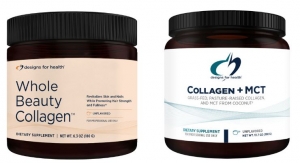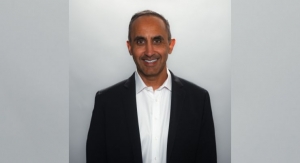Erik Goldman, Holistic Primary Care03.01.17
How will holistic medicine and the practitioner-focused nutraceutical sector fare under the Trump administration? It’s a big question with no obvious answer. Our fate will be shaped largely by what the new administration does with healthcare at large. And that is still full of unknowns.
Some industry thought leaders envision a brighter future under a market-friendly, pro-business, anti-regulation administration. Others see danger and instability.
With loud promises to obliterate Obamacare, a Republican majority in Congress, and an electoral base likely to demand action, the 45th president certainly has the legislative clout to drive big changes in how healthcare is financed, and possibly how it is practiced.
But Trump and company are already discovering that “repeal and replace” is easier said than done. First, many parts of the Affordable Care Act—like protections for preexisting conditions—are popular with Republican voters. Millions of poor and working-class Trump supporters could find themselves uninsured if the administration goes with the more extreme repeal proposals.
Second, short of a complete dictatorial overthrow of checks and balances, it is actually quite difficult to unmake a U.S. law once it’s on the books. And that’s a good thing. If rewriting laws were easy, we’d be living in a different country every time there was an administration change.
A massive law like ACA, which affects multiple branches of government, several of the largest private industries, 17% of the GDP, and literally tens of millions of people is not something you change with a pen stroke.
‘Nothing is Clear’
Assuming the president will ultimately adhere to the fundamentals of legislative process, a Trump healthcare remake will face the same complex congressional wrangling as any law ever proposed—even with a Senate and House majority.
Whatever changes are coming, they won’t be fast or easy.
“There’s no way we can pretend the law (the ACA) doesn’t exist, or that it can be easily repealed and replaced. There’s wide disagreement even among Republicans about what the ‘repeals’ and ‘replaces’ should be,” said Michael Leavitt, former head of Health & Human Services under George W. Bush, and a three-time governor of Utah.
Speaking last December at the Population Health Colloquium—a conference of healthcare administrators—Mr. Leavitt said he expects action on healthcare in the coming years, but the direction is unclear.
He added that while Nov. 8 was a victory day for Republicans, the GOP has only a two-vote margin in the Senate that could be easily lost come 2018. “Much of what will be proposed for repeal and replace will need 60 votes. Republicans don’t have that margin in the Senate.”
According to a recent survey of 426 primary care physicians published in the New England Journal of Medicine, only 15% say they support full repeal of Obamacare. None of the self-identified Democrats, and only 32% of the Republicans support repeal. Even among physicians who voted for Trump, only 38% want the administration to scuttle the ACA.
Almost all (95%) support protections for people with pre-existing conditions.
Is the Price Right?
Dr. Tom Price, who was recently confirmed as Secretary of Health & Human Services, is an avowed opponent of the ACA, and no fan of government-funded healthcare in general, though he has benefitted from it in many ways.
An Atlanta orthopedic surgeon with a net worth upward of $13 million, and investment ties to biomedical device companies, Dr. Price is a political and cultural conservative who has taken strong positions against abortion, gun control, environmental regulations, Planned Parenthood, National Public Radio, emergency mortgage relief, and increased tobacco regulation.
He is also an outspoken voice for physician independence, direct-pay practice, health savings accounts, malpractice reform, and health insurance tax credits.
In 2015, while in Congress, Dr. Price floated an ACA repeal called the “Empowering Patients First Act.” Among other things, it proposed: nullification of all Obamacare mandates; tax credits of up to $3,000 on private insurance; allowing insurers to set surcharges based on health status (thus cutting protection for pre-existing conditions); expanding HSAs; blocking Medicaid expansion; and cutting constraints on private contracting between physicians and Medicare patients.
Dr. Price is controversial among physicians; some believe that having a doctor at the top federal healthcare post will make a positive difference for clinicians and their patients. Others see his extreme conservatism as a threat to the nation’s well-being—especially the nation’s poor.
New Meaning to ‘R n’ R’
The White House has yet to give any details about its repeal-and-replace plan, but in January, House Speaker Paul Ryan updated his policy paper called “A Better Way: Our Vision for a Confident America,” which could become a blueprint for Trump’s healthcare remix. It incorporates many features from Dr. Price’s bill, though it retains protections for pre-existing conditions.
The issue of pre-existing conditions could be the Achilles’ heel for Trump’s repeal effort. Any plan that blocks insurers from cherry-picking based on health status while simultaneously nixing the ACA mandates that force healthier people to buy into the system will threaten insurance industry solvency. A plan like Mr. Ryan’s, which keeps the parts of Obamacare that Republican voters like while scrapping the rest, would pit the demands of the insurance lobby against the needs of President Trump’s much-vaunted “base,” and risks alienating both.
HSA! HSA!!
Republican emphasis on HSAs appeals to many in the holistic field. Tom Blue, the Institute for Functional Medicine’s director of strategic development, is hopeful about expanded HSAs. These accounts are already vital for the fiscal survival of many functional medicine practices. Expanded HSAs will, he believes, lead to expanded public access to functional medicine.
He acknowledged, however, that HSAs will do little for poor people or low-wage workers who earn too much to qualify for Medicaid but not enough to afford private insurance.
Mr. Blue sees both President Trump and Dr. Price as supportive of the kind of direct-pay models many functional practitioners favor. He also believes community-based cost-sharing plans like Liberty HealthShare, will see a boost under the new president. This, he said, is a sunny prospect for functional medicine.
Overall, though, he predicted that President Trump’s healthcare changes will be more subtle than substantive. “If you accept the basic premise that we want the majority of Americans to have some basic level of coverage, then you have to have certain things in place to make it financially viable. You’re not going to win elections if you screw everyone with a pre-existing condition.”
For naturopaths, ACA repeal presents a conundrum. Mike Jawer, director of government and public affairs for the American Association of Naturopathic Physicians (AANP), also sees HSA expansion as a good thing for the field.
But a complete repeal of the ACA would kill Section 2706—the much-praised “Non-Discrimination in Healthcare” provision that obliges insurers to reimburse all licensed practitioners of a given service if that service is within a practitioner’s legally-recognized scope. Under the law, insurers are supposed to reimburse licensed naturopaths for primary care services.
Though implementation has been inconsistent, Section 2706 has expanded ND reimbursement in some states. Most naturopaths, Mr. Jawer said, would hate to see it killed off.
Naturopathy has a public image of being “left of center,” but Mr. Jawer said the profession is actually quite politically diverse. “In Arizona we’ve had licensure since 1935, and in Montana since 1991. These are places known for being conservative. That counterbalances the left-leaning persona of NDs in Oregon and Washington.”
AANP has plans to tap into the iconoclastic spirit that got President Trump elected. “Our profession is very much in sync with what seems to be a lesson from the campaign: people want non-conventional solutions,” said Mr. Jawer. “That’s exactly what naturopathic physicians are trained in—alternatives to Big Pharma and Big Medicine.”
De-Regulate at Our Own Risk
It’s no secret that President Trump, like many in his circle, holds federal regulators in extreme contempt. He has demeaned the Food and Drug Administration as “the food police,” and on his watch the FDA could very well be neutered.
The White House has been short on specifics, but the top pick to head FDA is Jim O’Neill, a libertarian who runs Trump donor (and PayPal founder) Peter Theil’s Mithril Capital Management.
Lauded by many in the investment and biotech sectors, Mr. O’Niell detests FDA’s status quo, claiming that burdensome regulations and costs strangle innovation and kill people.
He’s a strong supporter of the “right to try,” which would take FDA out of determining drug and device efficacy, and limit the agency strictly to ensuring minimum safety. The free market is the best arbiter of efficacy, according to Mr. O’Neill.
Given our industry’s long, contentious relationship with the FDA, there’s no doubt many supplement company executives won’t be shedding tears if the new administration decides to castrate the regulators.
But before we pop champagne corks and celebrate a new era of laissez-faire, it is important to consider the long-term consequences. Diminution of FDA power might sound like a great idea, but deregulation could have serious blowback.
In the void of a weakened FDA, state attorneys general as well as plaintiffs lawyers could decide to pick up the slack, miring the industry in countless lawsuits—a slow and miserable death by 1,000 cuts. Even if the FDA and FTC are curtailed, and there’s an industry-friendly guy in the White House, supplement critics like Dr. Pieter Cohen and Paul Offit are not going away. Weakening the FDA will only give more credence to their argument that the industry is “unregulated”.
And if you’re concerned about the flood of contaminated raw materials, spiked ingredients, and generally crappy products tainting the market, imagine what the scene will be like after a few years of Trumpian deregulation.
Of course, few people will notice toxins in their supplements if Scott Pruitt, President Trump’s pick to head the Environmental Protection Agency, has his way and scuttles decades of environmental regulations. We’ll have lots more airborne, water-borne, and food-borne toxins to worry about.
Vaccine Fever
The president’s assertions that vaccines can cause autism and his promise to create a vaccine review committee—headed by liberal icon and vaccine critic Robert Kennedy—drew applause from many advocates of natural medicine. They see it as an indicator that the new president will challenge medical orthodoxy across the board.
Others see the vaccine claim as anti-science, likening it to his climate change denial, his willingness to censor federally funded scientists, and his talent for making up stats about nearly everything—from the size of his inauguration audience to the incidence of terrorism.
It remains to be seen whether the administration will follow through on the promised vaccine commission, and whether the president’s anti-establishment stance on vaccines signals true open-mindedness or ignorance.
Trump’s Supplement Blunder
Donald J. Trump is not a stranger to our industry. In 2009, he licensed his name and logo to Ideal Health, a multi-level vitamin marketing company. With Mr. Trump himself fronting the launch, the enterprise—called The Trump Network—usurped concepts from functional and personalized medicine to sell “customized” wellness protocols guided by an unverified, proprietary urine test. At peak, more than 20,000 independent sellers paid fees to join the network and sell the kits.
The company was initially successful with annual growth rates of 300%. But the company’s management blundered, stopped paying commission checks, and the network began to tank. Mr. Trump’s licensing agreement ended in 2011 and was not renewed.
Mr. Trump is not the only GOP heavyweight to flirt with supplements. Dr. Ben Carson, the nominee to head Housing & Urban Development, has been a paid speaker for Mannatech, one of the largest multi-level supplement companies.
Former Arkansas governor Mike Huckabee starred in infomercials promoting a “Diabetes Solution Kit” that promised to prevent people from becoming “a loyal pill-popping, finger-pricking, insulin-shooting customer so Big Pharma and the mainstream medical community can rake in over $100 billion.”
It remains to be seen how the Trump administration will tackle the challenges of healthcare, and how it will treat the nutrition industry.
If there’s anything that’s become clear about the nation’s new leader, it’s that he prefers to operate within a loud cloud of misinformation, does not respond well to criticism, and likes to keep people guessing about what he will and will not do.
For an in-depth look at how the changes in Washington may affect our industry, join us for the 5th annual Practitioner Channel Forum, April 26-28, at the Marriott Coronado Island in San Diego. Featured speakers include: Dr. Joe Pizzorno, Duffy MacKay, Todd Harrison, Steve Holmes, Michael Levin, Dr. Bridget Briggs, and many more—and get fresh practitioner data from Holistic Primary Care, Nutrition Business Journal, and the SORD study. For more information visit: www.TPCForum.com
Erik Goldman
Holistic Primary Care
Erik Goldman is co-founder and editor of Holistic Primary Care: News for Health & Healing, a quarterly medical publication reaching about 60,000 physicians and other heathcare professionals nationwide. He is also co-producer of the Practitioner Channel Forum, an annual executive level gathering focused on challenges and opportunities in the health practitioner channel. For more information: www.TPCForum.com.
Some industry thought leaders envision a brighter future under a market-friendly, pro-business, anti-regulation administration. Others see danger and instability.
With loud promises to obliterate Obamacare, a Republican majority in Congress, and an electoral base likely to demand action, the 45th president certainly has the legislative clout to drive big changes in how healthcare is financed, and possibly how it is practiced.
But Trump and company are already discovering that “repeal and replace” is easier said than done. First, many parts of the Affordable Care Act—like protections for preexisting conditions—are popular with Republican voters. Millions of poor and working-class Trump supporters could find themselves uninsured if the administration goes with the more extreme repeal proposals.
Second, short of a complete dictatorial overthrow of checks and balances, it is actually quite difficult to unmake a U.S. law once it’s on the books. And that’s a good thing. If rewriting laws were easy, we’d be living in a different country every time there was an administration change.
A massive law like ACA, which affects multiple branches of government, several of the largest private industries, 17% of the GDP, and literally tens of millions of people is not something you change with a pen stroke.
‘Nothing is Clear’
Assuming the president will ultimately adhere to the fundamentals of legislative process, a Trump healthcare remake will face the same complex congressional wrangling as any law ever proposed—even with a Senate and House majority.
Whatever changes are coming, they won’t be fast or easy.
“There’s no way we can pretend the law (the ACA) doesn’t exist, or that it can be easily repealed and replaced. There’s wide disagreement even among Republicans about what the ‘repeals’ and ‘replaces’ should be,” said Michael Leavitt, former head of Health & Human Services under George W. Bush, and a three-time governor of Utah.
Speaking last December at the Population Health Colloquium—a conference of healthcare administrators—Mr. Leavitt said he expects action on healthcare in the coming years, but the direction is unclear.
He added that while Nov. 8 was a victory day for Republicans, the GOP has only a two-vote margin in the Senate that could be easily lost come 2018. “Much of what will be proposed for repeal and replace will need 60 votes. Republicans don’t have that margin in the Senate.”
According to a recent survey of 426 primary care physicians published in the New England Journal of Medicine, only 15% say they support full repeal of Obamacare. None of the self-identified Democrats, and only 32% of the Republicans support repeal. Even among physicians who voted for Trump, only 38% want the administration to scuttle the ACA.
Almost all (95%) support protections for people with pre-existing conditions.
Is the Price Right?
Dr. Tom Price, who was recently confirmed as Secretary of Health & Human Services, is an avowed opponent of the ACA, and no fan of government-funded healthcare in general, though he has benefitted from it in many ways.
An Atlanta orthopedic surgeon with a net worth upward of $13 million, and investment ties to biomedical device companies, Dr. Price is a political and cultural conservative who has taken strong positions against abortion, gun control, environmental regulations, Planned Parenthood, National Public Radio, emergency mortgage relief, and increased tobacco regulation.
He is also an outspoken voice for physician independence, direct-pay practice, health savings accounts, malpractice reform, and health insurance tax credits.
In 2015, while in Congress, Dr. Price floated an ACA repeal called the “Empowering Patients First Act.” Among other things, it proposed: nullification of all Obamacare mandates; tax credits of up to $3,000 on private insurance; allowing insurers to set surcharges based on health status (thus cutting protection for pre-existing conditions); expanding HSAs; blocking Medicaid expansion; and cutting constraints on private contracting between physicians and Medicare patients.
Dr. Price is controversial among physicians; some believe that having a doctor at the top federal healthcare post will make a positive difference for clinicians and their patients. Others see his extreme conservatism as a threat to the nation’s well-being—especially the nation’s poor.
New Meaning to ‘R n’ R’
The White House has yet to give any details about its repeal-and-replace plan, but in January, House Speaker Paul Ryan updated his policy paper called “A Better Way: Our Vision for a Confident America,” which could become a blueprint for Trump’s healthcare remix. It incorporates many features from Dr. Price’s bill, though it retains protections for pre-existing conditions.
The issue of pre-existing conditions could be the Achilles’ heel for Trump’s repeal effort. Any plan that blocks insurers from cherry-picking based on health status while simultaneously nixing the ACA mandates that force healthier people to buy into the system will threaten insurance industry solvency. A plan like Mr. Ryan’s, which keeps the parts of Obamacare that Republican voters like while scrapping the rest, would pit the demands of the insurance lobby against the needs of President Trump’s much-vaunted “base,” and risks alienating both.
HSA! HSA!!
Republican emphasis on HSAs appeals to many in the holistic field. Tom Blue, the Institute for Functional Medicine’s director of strategic development, is hopeful about expanded HSAs. These accounts are already vital for the fiscal survival of many functional medicine practices. Expanded HSAs will, he believes, lead to expanded public access to functional medicine.
He acknowledged, however, that HSAs will do little for poor people or low-wage workers who earn too much to qualify for Medicaid but not enough to afford private insurance.
Mr. Blue sees both President Trump and Dr. Price as supportive of the kind of direct-pay models many functional practitioners favor. He also believes community-based cost-sharing plans like Liberty HealthShare, will see a boost under the new president. This, he said, is a sunny prospect for functional medicine.
Overall, though, he predicted that President Trump’s healthcare changes will be more subtle than substantive. “If you accept the basic premise that we want the majority of Americans to have some basic level of coverage, then you have to have certain things in place to make it financially viable. You’re not going to win elections if you screw everyone with a pre-existing condition.”
For naturopaths, ACA repeal presents a conundrum. Mike Jawer, director of government and public affairs for the American Association of Naturopathic Physicians (AANP), also sees HSA expansion as a good thing for the field.
But a complete repeal of the ACA would kill Section 2706—the much-praised “Non-Discrimination in Healthcare” provision that obliges insurers to reimburse all licensed practitioners of a given service if that service is within a practitioner’s legally-recognized scope. Under the law, insurers are supposed to reimburse licensed naturopaths for primary care services.
Though implementation has been inconsistent, Section 2706 has expanded ND reimbursement in some states. Most naturopaths, Mr. Jawer said, would hate to see it killed off.
Naturopathy has a public image of being “left of center,” but Mr. Jawer said the profession is actually quite politically diverse. “In Arizona we’ve had licensure since 1935, and in Montana since 1991. These are places known for being conservative. That counterbalances the left-leaning persona of NDs in Oregon and Washington.”
AANP has plans to tap into the iconoclastic spirit that got President Trump elected. “Our profession is very much in sync with what seems to be a lesson from the campaign: people want non-conventional solutions,” said Mr. Jawer. “That’s exactly what naturopathic physicians are trained in—alternatives to Big Pharma and Big Medicine.”
De-Regulate at Our Own Risk
It’s no secret that President Trump, like many in his circle, holds federal regulators in extreme contempt. He has demeaned the Food and Drug Administration as “the food police,” and on his watch the FDA could very well be neutered.
The White House has been short on specifics, but the top pick to head FDA is Jim O’Neill, a libertarian who runs Trump donor (and PayPal founder) Peter Theil’s Mithril Capital Management.
Lauded by many in the investment and biotech sectors, Mr. O’Niell detests FDA’s status quo, claiming that burdensome regulations and costs strangle innovation and kill people.
He’s a strong supporter of the “right to try,” which would take FDA out of determining drug and device efficacy, and limit the agency strictly to ensuring minimum safety. The free market is the best arbiter of efficacy, according to Mr. O’Neill.
Given our industry’s long, contentious relationship with the FDA, there’s no doubt many supplement company executives won’t be shedding tears if the new administration decides to castrate the regulators.
But before we pop champagne corks and celebrate a new era of laissez-faire, it is important to consider the long-term consequences. Diminution of FDA power might sound like a great idea, but deregulation could have serious blowback.
In the void of a weakened FDA, state attorneys general as well as plaintiffs lawyers could decide to pick up the slack, miring the industry in countless lawsuits—a slow and miserable death by 1,000 cuts. Even if the FDA and FTC are curtailed, and there’s an industry-friendly guy in the White House, supplement critics like Dr. Pieter Cohen and Paul Offit are not going away. Weakening the FDA will only give more credence to their argument that the industry is “unregulated”.
And if you’re concerned about the flood of contaminated raw materials, spiked ingredients, and generally crappy products tainting the market, imagine what the scene will be like after a few years of Trumpian deregulation.
Of course, few people will notice toxins in their supplements if Scott Pruitt, President Trump’s pick to head the Environmental Protection Agency, has his way and scuttles decades of environmental regulations. We’ll have lots more airborne, water-borne, and food-borne toxins to worry about.
Vaccine Fever
The president’s assertions that vaccines can cause autism and his promise to create a vaccine review committee—headed by liberal icon and vaccine critic Robert Kennedy—drew applause from many advocates of natural medicine. They see it as an indicator that the new president will challenge medical orthodoxy across the board.
Others see the vaccine claim as anti-science, likening it to his climate change denial, his willingness to censor federally funded scientists, and his talent for making up stats about nearly everything—from the size of his inauguration audience to the incidence of terrorism.
It remains to be seen whether the administration will follow through on the promised vaccine commission, and whether the president’s anti-establishment stance on vaccines signals true open-mindedness or ignorance.
Trump’s Supplement Blunder
Donald J. Trump is not a stranger to our industry. In 2009, he licensed his name and logo to Ideal Health, a multi-level vitamin marketing company. With Mr. Trump himself fronting the launch, the enterprise—called The Trump Network—usurped concepts from functional and personalized medicine to sell “customized” wellness protocols guided by an unverified, proprietary urine test. At peak, more than 20,000 independent sellers paid fees to join the network and sell the kits.
The company was initially successful with annual growth rates of 300%. But the company’s management blundered, stopped paying commission checks, and the network began to tank. Mr. Trump’s licensing agreement ended in 2011 and was not renewed.
Mr. Trump is not the only GOP heavyweight to flirt with supplements. Dr. Ben Carson, the nominee to head Housing & Urban Development, has been a paid speaker for Mannatech, one of the largest multi-level supplement companies.
Former Arkansas governor Mike Huckabee starred in infomercials promoting a “Diabetes Solution Kit” that promised to prevent people from becoming “a loyal pill-popping, finger-pricking, insulin-shooting customer so Big Pharma and the mainstream medical community can rake in over $100 billion.”
It remains to be seen how the Trump administration will tackle the challenges of healthcare, and how it will treat the nutrition industry.
If there’s anything that’s become clear about the nation’s new leader, it’s that he prefers to operate within a loud cloud of misinformation, does not respond well to criticism, and likes to keep people guessing about what he will and will not do.
For an in-depth look at how the changes in Washington may affect our industry, join us for the 5th annual Practitioner Channel Forum, April 26-28, at the Marriott Coronado Island in San Diego. Featured speakers include: Dr. Joe Pizzorno, Duffy MacKay, Todd Harrison, Steve Holmes, Michael Levin, Dr. Bridget Briggs, and many more—and get fresh practitioner data from Holistic Primary Care, Nutrition Business Journal, and the SORD study. For more information visit: www.TPCForum.com
Erik Goldman
Holistic Primary Care
Erik Goldman is co-founder and editor of Holistic Primary Care: News for Health & Healing, a quarterly medical publication reaching about 60,000 physicians and other heathcare professionals nationwide. He is also co-producer of the Practitioner Channel Forum, an annual executive level gathering focused on challenges and opportunities in the health practitioner channel. For more information: www.TPCForum.com.




























